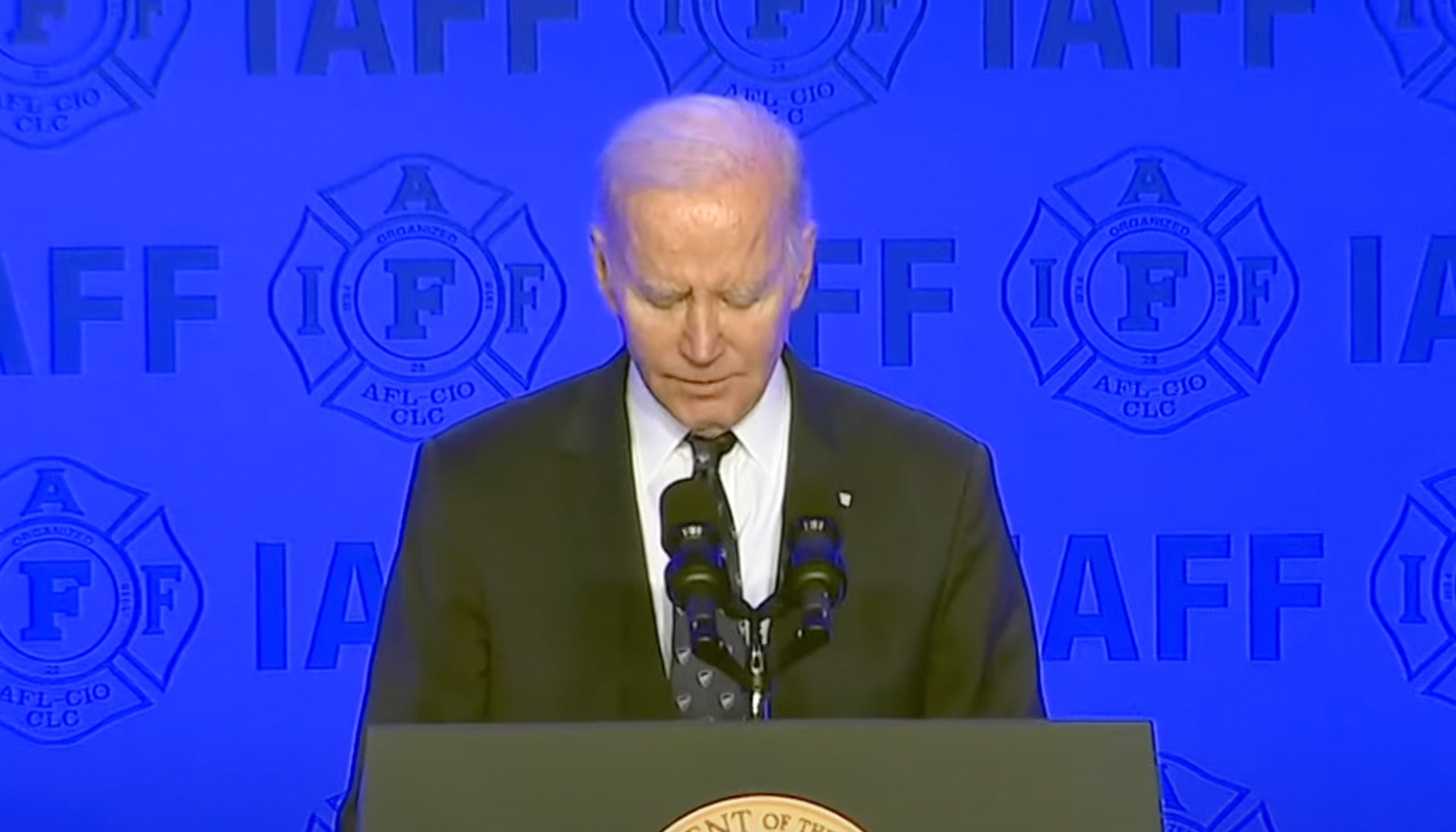Rand Paul, Mike Lee Denounce Biden’s Ukraine Security Pact
In a significant political move, Sens. Rand Paul and Mike Lee introduced a resolution on Friday condemning President Joe Biden's recent security guarantees to Ukraine, which spans a decade and aims to bolster Ukraine’s defense efforts and edge it closer to NATO membership but has drawn sharp criticism for allegedly bypassing the constitutional role of Congress.
The resolution by Paul and Lee challenges the legitimacy of Biden’s security commitment, arguing that it unlawfully binds the U.S. to a potential long-term military engagement, as Breitbart reports.
Paul and Lee's resolution condemns the security agreement as unconstitutional. They assert that President Biden’s decision to commit to a ten-year plan with Ukraine without congressional approval is a significant overreach of executive power. The senators label the agreement a “backdoor” entry into NATO that circumvents the Senate's role in ratifying such treaties.
Aimed at Strengthening Ukraine's Defense
Biden's decade-long security pact with Ukraine focuses on enhancing its defense industrial base and supporting its defense against potential future aggression. The administration has described this move as critical for maintaining regional stability and assuring European allies of American commitment.
The agreement aims not just to support Ukraine militarily but to signal a firm stance against aggression. However, it is only binding under the current U.S. administration and has no congressional ratification, leaving it vulnerable to potential annulment by future administrations, such as a possible second term for former President Donald Trump.
Paul criticized the agreement, suggesting it risks dragging the U.S. into yet another prolonged military conflict without sufficient exit strategies or equitable burden-sharing from European nations. He emphasized the need to prioritize American interests and avoid endless foreign engagements.
Constitutional Concerns and Legal Authority
Lee echoed Paul's concerns, focusing on the procedural issues of Biden’s decision. Lee argues that bypassing the Senate’s role in treaty ratification is an unacceptable sidestep of constitutional process. He stressed that significant security commitments should undergo rigorous Senate scrutiny to ensure they are in the nation's best interest.
The resolution states that any long-term security commitment warrants thorough examination by the Senate. This perspective highlights a broader concern about executive overreach and the importance of legislative oversight in foreign policy decisions.
Despite the criticisms, President Biden defended the agreement, asserting it is essential for ensuring Ukraine's capacity to defend itself and deter future threats. He believes that a lasting peace in the region hinges on Ukraine’s military self-sufficiency.
Ukrainian Response to the Agreement
Ukrainian President Volodymyr Zelensky heralded the signing of the agreement as a historic milestone for Ukraine. Zelensky's comments reflect the significance of American support for Ukraine amidst ongoing regional tensions and conflicts.
The Biden administration’s decision aims to reassure both Ukraine and European allies of America's steadfast commitment to regional security and stability. However, the high stakes move has provoked a contentious debate regarding the appropriate balance of power between the executive branch and Congress in matters of foreign policy.
For Sens. Paul and Lee, the central issue remains the constitutional process. They argue that circumventing the Senate’s ratification undermines the democratic safeguards designed to prevent unilateral executive decisions in matters of war and peace.
Potential Implications of Security Pact
The potential repercussions of the agreement extend beyond the immediate political arena. Should the pact remain in place, it could significantly shape U.S.-Ukraine relations and the broader geopolitical landscape in Eastern Europe.
However, its longevity is uncertain given the possibility of future administrations reversing course.
Paul and Lee's resolution underscores the need for a comprehensive debate on U.S. foreign policy and the constitutional boundaries of executive power.
This deliberation comes at a pivotal moment, with increasing global tensions and the ongoing conflict in Ukraine necessitating clear and considered strategies.
In conclusion, the resolution introduced by Sens. Rand Paul and Mike Lee sheds light on the constitutional and strategic implications of President Biden’s security guarantees to Ukraine.
They emphasize that any substantial foreign commitments must be scrutinized by the Senate to ensure they align with American interests. As the debate unfolds, the future of the U.S.-Ukraine security pact remains a critical point of contention in U.S. foreign policy.





